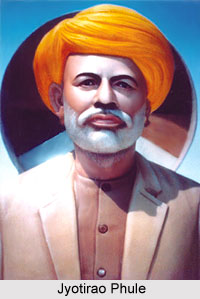 Jyotirao Phule on Primary Education has done a great deal of good towards promoting the concept of education among the people. With regard to the few Government primary schools that exist in the Presidency, Phule observed that the primary education imparted in them is not at all placed on a satisfactory or sound basis. The system was imperfect and did not prove practical and useful in the future career of the pupils. However, it had the capability of being developed up to the requirement of the community, if improvements that will result in its future usefulness were effected in it.
Jyotirao Phule on Primary Education has done a great deal of good towards promoting the concept of education among the people. With regard to the few Government primary schools that exist in the Presidency, Phule observed that the primary education imparted in them is not at all placed on a satisfactory or sound basis. The system was imperfect and did not prove practical and useful in the future career of the pupils. However, it had the capability of being developed up to the requirement of the community, if improvements that will result in its future usefulness were effected in it.
Phule felt that both the teaching machinery employed and the course of instruction now followed, required a thorough remodelling. Thus he laid a thorough list of what he thought required to be done in order to improve the condition of primary education.
1. He felt that teachers employed were mostly Brahmins; a few of them are from the normal training college, the rest being all untrained men. They were paid low salaries. He felt that the teachers of the primary schools must be properly trained. And they should also be able to mix with students freely, and understand their wants and desires. The course of training for them ought to include, besides the ordinary subjects, an elementary knowledge of agriculture and sanitation. The untrained teachers should, except when thoroughly efficient, be replaced by efficient trained teachers.
2. He formulated the course of study and said it should consist of reading, writing and accounts, and a rudimentary knowledge of general history, general geography, and grammar, also an elementary knowledge of agriculture and a few lessons on moral duties and sanitation.
3. Phule felt that the system of supervising agency over these primary schools was also very defective and insufficient, and that according to him, needed to be upgraded.
4. He also felt that the number of primary schools were much less and should be increased;
a) By utilizing such of the indigenous schools as shall be or are conducted by trained and certificated teachers, by giving them liberal grants-in-aid.
b) By making over one half of the local cess fund for primary education alone.
c) By compelling, under a statutory enactment, municipalities to maintain all the primary schools within their respective limits.
d) By an adequate grant from the provincial or imperial funds.






